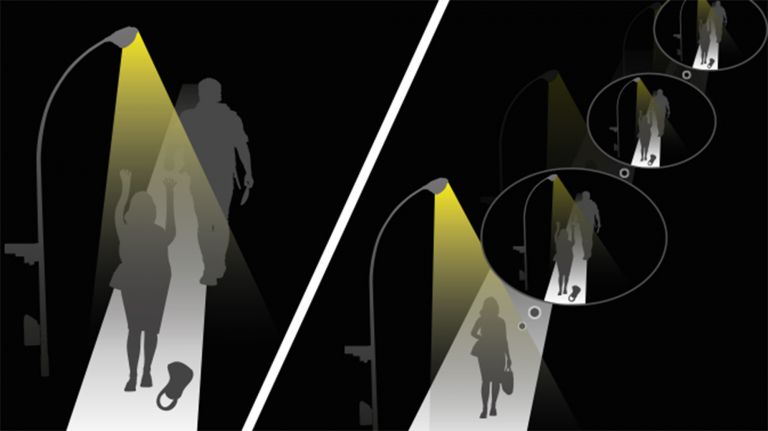Ingrid Ehrlich
PromotionsstudiumFrau Dr. Ingrid Ehrlich promovierte an der Johann Wolfgang Goethe-Universität und arbeitete anschließend als Postdoc im Cold Spring Harbor Laboratory in New York. 2006 wechselte sie ans Friedrich-Miescher Institute in Basel. Seit 2009 leitet Dr. Ehrlich die Forschungsgruppe „Learning and Memory“ am Hertie Institute für klinische Hirnforschung. Die zellulären und synaptischen Grundlagen von Lernen und Gedächtnisprozessen sind ihr Forschungsgebiet. Dabei konzentriert sie sich auf die klassische (Pawlowsche) Furchtkonditionierung und seine Löschung am Tiermodell. Ihre Untersuchungen zielen auf das Amygdala-Netzwerks einschließlich der hemmenden Elemente sowie ihrer Wechselwirkungen mit anderen Strukturen ab.
Work focus:
Kognitive Neurowissenschaften, Neurowissenschaften Allgemein
Graduation:
Promotionsstudium
Position / Activity:
Forschungsgruppenleiterin
Homepage:
http://www.hih-tuebingen.de/learning-and-memory/research-directions/
Asede D, Bosch D, Lüthi A, Ferraguti F, Ehrlich I. Sensory inputs to intercalated cells provide fear-learning modulated inhibition to the basolateral amygdala. Neuron. 2015 April 22;86(2):1-14.
Wolff SB, Gründemann J, Tovote P, Krabbe S, Jacobson GA, Müller C, Herry C,
Ehrlich I, Friedrich RW, Letzkus JJ, Lüthi A. Amygdala interneuron subtypes
control fear learning through disinhibition. Nature. 2014 May 22;509(7501):453-8.
Hübner C, Bosch D, Gall A, Lüthi A, Ehrlich I. Ex vivo dissection of optogenetically activated mPFC and hippocampal inputs to neurons in the
basolateral amygdala: implications for fear and emotional memory. Front Behav
Neurosci. 2014 Mar 5;8:64.
Senn V, Wolff SB, Herry C, Grenier F, Ehrlich I, Gründemann J, Fadok JP,
Müller C, Letzkus JJ, Lüthi A. Long-range connectivity defines behavioral
specificity of amygdala neurons. Neuron. 2014 Jan 22;81(2):428-37.
Ciocchi S, Herry C, Grenier F, Wolff SB, Letzkus JJ, Vlachos I, Ehrlich I,
Sprengel R, Deisseroth K, Stadler MB, Müller C, Lüthi A. Encoding of conditioned fear in central amygdala inhibitory circuits. Nature. 2010 Nov
11;468(7321):277-82.
Herry C, Ferraguti F, Singewald N, Letzkus JJ, Ehrlich I, Lüthi A. Neuronal
circuits of fear extinction. Eur J Neurosci. 2010 Feb;31(4):599-612.
Tang W, Ehrlich I, Wolff SB, Michalski AM, Wölfl S, Hasan MT, Lüthi A,
Sprengel R. Faithful expression of multiple proteins via 2A-peptide
self-processing: a versatile and reliable method for manipulating brain circuits.
J Neurosci. 2009 Jul 8;29(27):8621-9.
Ehrlich I, Humeau Y, Grenier F, Ciocchi S, Herry C, Lüthi A. Amygdala
inhibitory circuits and the control of fear memory. Neuron. 2009 Jun
25;62(6):757-71.
Elkobi A, Ehrlich I, Belelovsky K, Barki-Harrington L, Rosenblum K.
ERK-dependent PSD-95 induction in the gustatory cortex is necessary for taste learning, but not retrieval. Nat Neurosci. 2008 Oct;11(10):1149-51.
Ehrlich I, Klein M, Rumpel S, Malinow R. PSD-95 is required for activity-driven synapse stabilization. Proc Natl Acad Sci U S A. 2007 Mar 6;104(10):4176-81.
Boehm J, Ehrlich I, Hsieh H, Malinow R. Two mutations preventing PDZ-protein
interactions of GluR1 have opposite effects on synaptic plasticity. Learn Mem.
2006 Sep-Oct;13(5):562-5.
Ehrlich I, Malinow R. Postsynaptic density 95 controls AMPA-receptor incorporation during Long-Term Potentiation and experience-driven synaptic plasticity. J Neurosci. 2004 Jan 28;24(4):916-27.
Eberhard Karls Universität Tübingen
Öffentliche ForschungInstitute:
Hertie-Institut für klinische Hirnforschung
Work focus:
Kognitive Neurowissenschaften, Neurowissenschaften Allgemein
Address:
Otfried-Mueller-Str. 25
72076 Tübingen
DE
